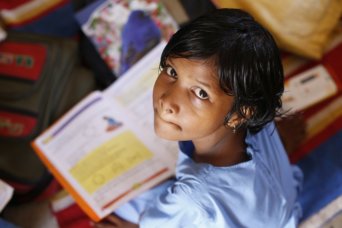- About
- Topics
- Story
- In-Depth
- Picks
- Opinion
- News
- Donate
- Signup for our newsletterOur Editors' Best Picks.Send
Read, Debate: Engage.
| topic: | Child rights |
|---|---|
| editor: | Katarina Panić |
The Programme for International Student Assessment (PISA) once again sparked polemics after the 2018 results were published earlier this week. Tests of 15-year-olds in reading, maths and science, run by the Organisation for Economic Co-operation and Development (OECD) take place every three years. Despite serious reservations about its validity and reliability among experts, PISA has become the most influential rankings in international education.
Those who campaign it, keep repeating PISA measures skills needed in terms of being prepared for life in modern economies. Those who oppose, believe the values such as “participation in democratic self-government, moral action and a life of personal development, growth and wellbeing” are more important.
Beyond these controversies, recent PISA records show that one out of ten students is able to differ the fact from the opinion. This could be an essential problem, no matter if a society strives for technology or for humanity. All communities regardless of their cultural, political, religious, and economic background should worry about a lack of thinking capacity.
What does this mean for the future in our recent era of populism? If one cannot accurately distinguish between fact and opinion, they might be successfully convinced that both can be verified as truth. If so, one can be easily manipulated too. Furthermore, it makes people obedient rather than free-thinking, just like the totalitarian and autocratic regimes would like to be. Society does not encourage critical thinking. It is a privilege of a minority whose voice is not heard enough.
My parents’ generation grew up without TV. They believed in newspapers. My generation grew up with one state-controlled TV channel. And we believed in everything broadcasted there. My children are growing up believing in digital everything more than in traditional anything. Still, we have one thing in common: a lack of doubt. I read it in newspapers. I saw it on TV. I found it online. This was and still is the truth, which is written in stone and taken for granted.
Education is still reproductive, not participatory or interactive. It does not create the habit of asking the questions. This week was a parent's meeting for the class of my 8-years old daughter. The teacher said she asks the kids to learn the lessons by heart. Parents kept silent.
A friend of mine wrote afterwards: I teach my daughter that she may forget the questions who, what, when and where, but under no circumstances, she must not forget the question why. I will repeat it to her endlessly.
